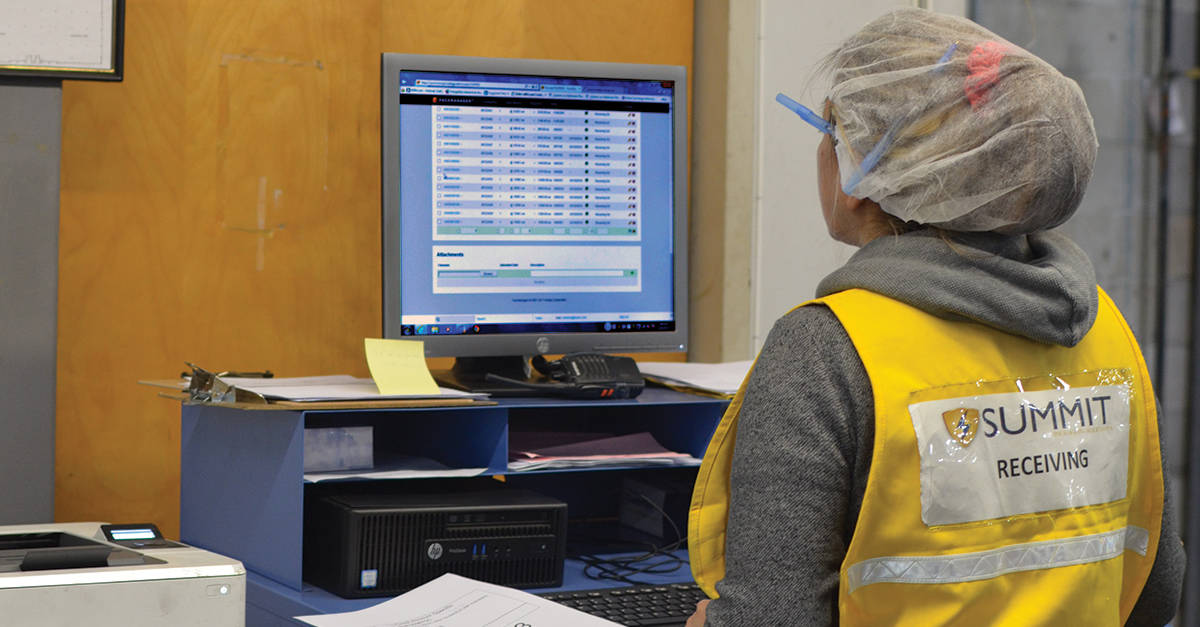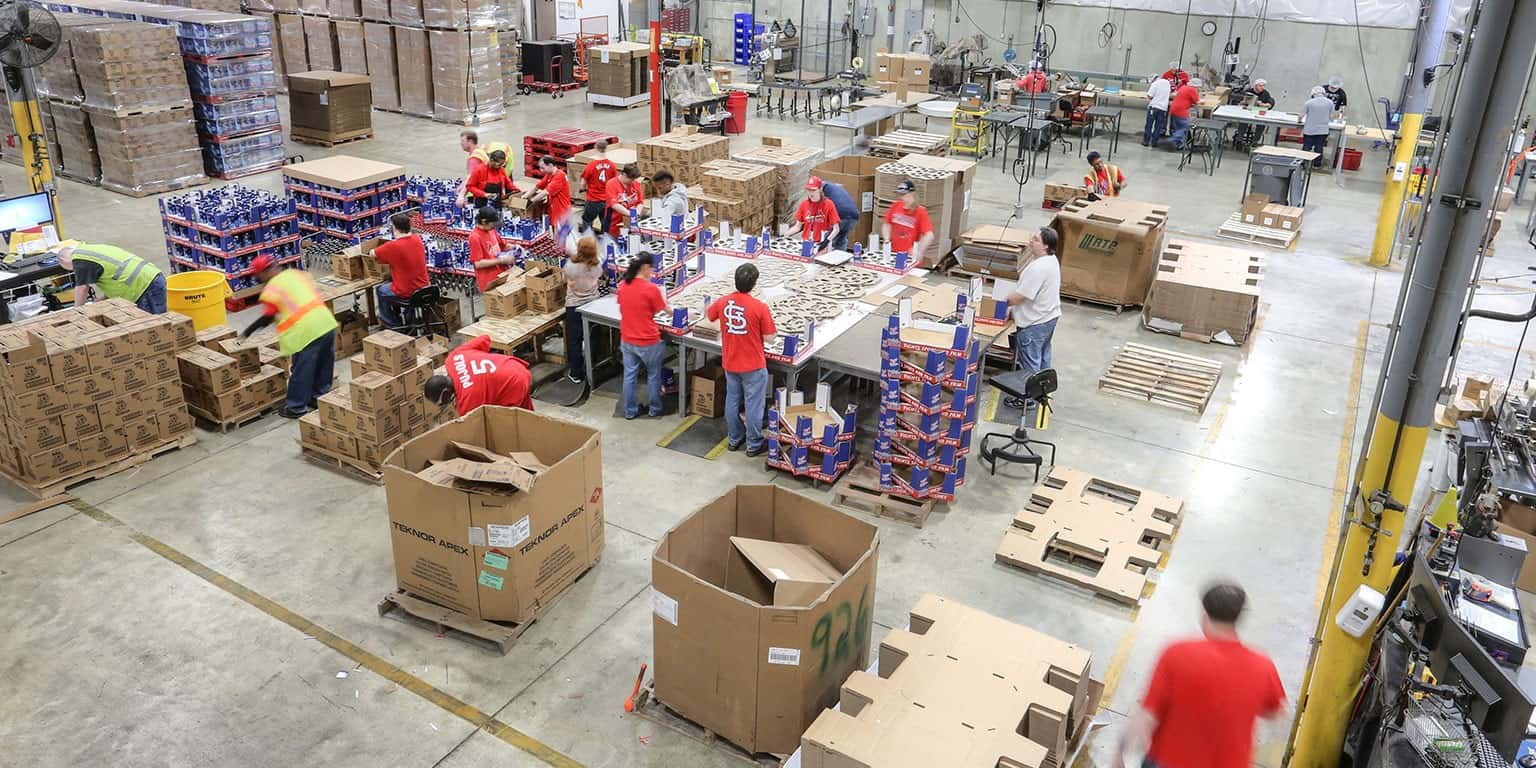What is Inventory Management?
Inventory management is the practice of overseeing, controlling, and optimizing the flow of raw materials, packaging supplies, work-in-progress goods, and finished products as they move through the operations of supply chain providers such as contract packagers, contract manufacturers, and 3PLs. For these providers, inventory management involves keeping track of stock levels as well as ensuring accuracy, efficiency, and visibility of materials so they can fulfill customer order requirements while minimizing waste, carrying costs, and operational bottlenecks.
Inventory management is a critical aspect of efficiency for co-packers, contract manufacturers and value-added 3PLs. As businesses grow, the complexity of managing inventory and order capacity increases, making it essential to have the right tools in place. The right warehouse inventory management software can streamline operations, reduce errors, and enhance overall productivity.
What Inventory Management Solutions Are Available?
Inventory management software encompasses a wide range of solutions, from basic tracking tools to advanced enterprise platforms that integrate planning, execution, and analytics. For enterprises and service providers across the supply chain, the main categories include:
- Inventory Management Systems (IMS): Core tracking of stock levels, locations, and movements.
- Warehouse Management Systems (WMS): Manages all warehouse operations, with strong inventory functionality.
- Enterprise Resource Planning (ERP): Company-wide system that integrates finance, procurement, production, and inventory.
- Manufacturing Execution Systems (MES): Shop floor control and production execution with close ties to inventory.
- Advanced Scheduling and Planning (APS): Forecasting and optimizing inventory levels across the extended supply chain.
- Transportation Management Systems (TMS): Optimizes shipments and logistics, tightly linked to inventory availability.
Learn more about warehouse inventory management software capabilities.
What Software Capabilities are Critical for Inventory Management?
When it comes to managing inventory and materials, many traditional software providers claim to be a fit for contract packaging companies, but are inadequate in addressing the needs and challenges facing co-packers.
Co-pack production floors and warehouses are complex and dynamic, with a wide range of components, bills of materials (BOMs), and customers being handled every day. Purpose-built contract packaging software should enable users to easily manage and handle these complexities.
Strong inventory management software for co-packers and co-manufacturers should have purpose-built capabilities such as:
- Tracking inventory across multiple floor and rack locations, with detailed visibility into stock levels and movements, including productivity metrics by operator.
- Implementing barcode-enabled workflows for accurate picking, packing, and shipping processes.
- Enabling streamlined management of incoming receipts and outgoing shipments with complete traceability.
- Providing system-guided picking to reduce errors and improve productivity.
- Offering a mobile interface optimized for tablets, enabling forklift operators and warehouse workers to perform tasks efficiently and with ease.
- Offering detailed audit trails for inventory adjustments, providing traceability for financial and operational reporting.
Further, purpose-built software for contract packaging and contract manufacturing operations can support complex workflows involving:
- Production scheduling – Easily manage your production calendar in a visual, drag-and-drop interface.
- Order management – Use real-time dashboards to track production as it happens.
- Labor management – Effectively schedule, allocate, and optimize labor resources.
- Inventory management – Easily track your in-transit and on-hand inventory needed for orders.
- Quality control – Digitally track and enforce quality-related processes.
- Reporting – Quickly export and visualize production data.
Learn more about what to look for in a warehouse management software provider.
What Challenges Does Contract Packaging Software Solve?
MMany co-pack businesses struggle to get by on Excel spreadsheets and homegrown systems for inventory management and production, leading to:
- Scattered information
- Inaccurate data
- Wasted personnel hours
- Higher scrap rates and reduced quality
- Missed deadlines
- Unhappy customers
Further, when these businesses rely on outdated software and clunky spreadsheets to manage their inventory and plant floor, they have trouble expanding and growing. Co-pack compatible software should be able to scale easily as the business grows.
Contract packaging solutions are built from the ground up to address the challenges that co-packers face every day in scheduling, production, quality, and more.
Labor costs and labor management are also a critical challenge for contract packaging companies. Read how co-pack software can optimize labor management.
Read more: The Top 5 Biggest Pains for Co-Packers – and How Software Solves Them
What’s Your Shop Floor Visibility Score?
How easily can you collect data about your co-pack production and business? Take our quick Data Visibility quiz to see where you stand.
What are the Benefits of Contract Packaging Software?
Contract packaging software offers a wide range of inventory management, production, and business-related benefits over other co-pack management alternatives, including:
- Real-time visibility and control over production, inventory, and labor, producing data on active job performance and profitability.
- Increased quality and service levels through paperless control, tracking and reporting on quality inspections and batch records.
- Enhanced agility and responsiveness to changing demand and supply without losing money from safety stock or material obsolescence.
- Digitally tracked inventory and labor management with dynamic production planning and scheduling connected to actual work orders.
These tools help reduce waste, improve quality, and ensure accurate order fulfillment—especially when managing high-mix, low-volume work typical in contract packaging.
Learn How to Choose the Best Contract Packaging Software For You
Contract packaging is a complex, dynamic business, in which orders can change multiple times a day, exposing risks for miscommunications, delays, inventory shortages, and more. It is critical to choose co-manufacturing management software that is purpose-built to effectively manage ever-changing schedules, production statuses and workflows.
Choosing the right software for your contract packaging operation can feel overwhelming. We created a guide specifically to help co-manufacturers and co-packers navigate the software landscape and select the right solution for their needs.
We created a guide specifically to help co-packers navigate the software landscape and select the right solution for their needs.
In this guide you’ll learn:
- A comprehensive checklist of software capabilities
- How to choose the right contract manufacturing and co-packaging software
- Why traditional software systems are ill-equipped to meet the needs of contract packagers and contract manufacturers
Download our free guide today.











